 A significant proportion of American Evangelicals hold views that are at odds with the historic Christian faith.
A significant proportion of American Evangelicals hold views that are at odds with the historic Christian faith.
This is the finding of a Christianity Today article: “New Poll Finds Evangelicals’ Favorite Heresies” (October 2014). The survey was done by LifeWay Research for Ligonier Ministries.
The Problem: Evangelicalism Infected by Heresies
The good news is that the majority of self-identified Evangelical do believe in key doctrines like Jesus’ resurrection from the dead (96%), salvation through Jesus alone (92%), God’s sovereignty over all people (89%), and the Bible as the Word of God (88%).
The bad news is that while the majority of Evangelicals affirmed belief in the Trinity (96%) and Jesus’ divinity (88%), nearly a quarter (22%) were of the opinion that God the Father is more divine than Jesus. Disturbingly, a sizable minority (16%) say Jesus was the first creature by God and 11% were not sure. This is disturbing because this echoes the ancient heresy of Arianism that was repudiated at the Council of Nicea (AD 325). Just as disturbing was the finding that slightly more than half (51%) said the Holy Spirit is a force, not a personal being. This echoes another ancient heresy that was condemned at the Council of Constantinople (AD 381).
Evangelical Solution: More Adult Education
Kevin Emmert who authored the Christianity Today article presents an Evangelical solution: better adult Christian education. He cites retired Asbury College professor Howard Snyder sees the need for clearer teaching on the Trinity. Stephen Nichols of Ligonier Ministries urged Evangelicals to learn from the historic church and to use creeds in their personal discipleship, steps many low church Evangelicals would find radical.
Mainline Protestant Solution: Return to Classic Sola Scriptura
Matthew Block wrote a response article for First Things: “Misreading Scripture Alone: How We Ended Up Heretics.” He is of the opinion that the reason for the prevalence of these heresies lie with the extreme version of Sola Scriptura – “All I need is me and my Bible” – among Evangelicals. He calls for a return to the classic version of Sola Scriptura which eschews an individualistic approach to Scripture and favors reading Scripture in the context of the church tradition.
This is a more accurate understanding of the Reformation understanding of the relationship between Scripture and Tradition (and, indeed, explains why Lutherans can consider the Lutheran Symbols authoritative). We cannot simply reject the history of the Church. True, where Tradition is appealed to as a source of new dogma, we are right to resist it. But when Tradition codifies and clearly re-presents the teachings of Scripture, it is to be accepted as a norming influence on our individual reading of Scripture. (Emphasis added.)
Here we see Matthew Block, unlike many Evangelicals, boldly affirming the role of capital “T” Tradition. His remedy to the heresy epidemic is classic Protestantism. While his remedy sounds much like Orthodoxy there are some fundamental differences in the way classical Protestantism and Orthodoxy understand Scripture and Tradition.
In what follows I will examine: (1) how Orthodoxy’s living Tradition differs from that proposed by Mr. Block and (2) how Orthodoxy’s Holy Tradition offers an efficacious remedy against the heresy epidemic troubling contemporary Evangelicalism.

Where’s the Church?
Matthew Block’s high view of the church can be seen in his use of capital “C” Church. He writes:
But Scripture was not given for the benefit of you or me alone. Instead, it was given for the benefit of the Church, throughout history and throughout the world. Consequently, we ought to read Scripture together as a Church. The Church as a body has centuries of experience of reading the Word, of immersing itself in the language of God. (Emphasis added.)
This statement is something that an Orthodox Christian can easily agree with. But what does Matthew Block mean by the “Church”? Does “Church” apply only to the Lutherans? Does “Church” apply to other Protestants like the Reformed and the low church Evangelicals? Does he include also the Anglicans?

Priest and Bishop at the Eucharist
Orthodoxy understands “Church” to comprise the local Eucharistic assembly under the leadership of the bishop. Historically, the bishop was viewed as the successor to the Apostles and the guardian of Apostolic Tradition. Christianity from its early days was episcopal in structure. Ignatius of Antioch, one of the Apostolic Fathers, stressed the importance of the church being under the bishop. It is important to keep in mind that Ignatius’ church in Antioch was the home church of Paul and Barnabas, and of Mark who later wrote the Gospel of Mark (see Acts 13:1-3, 15:37). Ignatius thus represents the mainstream view of the early Church in the statements below. He writes:
See that you all follow the bishop, as Jesus Christ follows the Father, and the presbytery as if it were the Apostles. (Letter to the Smyrnaeans 8.1; emphasis added.)
For Ignatius the office of the bishop was integral to the existence of the Church.
Likewise let all respect the deacons as Jesus Christ, even as the bishop is also a type of the Father, and the presbyters as the council of God and the college of Apostles. Without these the name of “Church” is not given. (Letter to the Trallians 3.1; emphasis added.)
And for Ignatius, there could be no valid Eucharist apart from the bishop.
Let that be considered a valid Eucharist which is celebrated by the bishop or by one whom he appoints. . . . . It is not lawful either to baptise or to hold an “agape” without the bishop . . . . (Letter to the Smyrnaeans 8.2; emphasis added)
In Orthodoxy it is expected that a local church will celebrate the Eucharist every Sunday and that the local parish priest be under the authority of a bishop. The office of the bishop was the universal norm in Christianity until the Reformation in the 1500s. So I find it puzzling that Matthew Block is vague as to what he means by “Church” when early Christian Tradition is clear about the church being under the bishop. The Lutheran tradition allows for “bishops,” but it does not regard the episcopacy as universally normative. For the Orthodox the bishop links the local church to the Church Catholic around the world and provides an unbroken historical ink to the Apostles, a claim that Lutherans cannot make.
Orthodox Solution: Living Tradition
Protestantism can be said to be a religion of books. In addition to the Bible as the supreme authority, for Matthew Block there is also the Lutheran Symbols, i.e., the Book of Confessions, for Reformed Christians there are the Westminster Confession and the Heidelberg Catechism. There is also a tendency among Protestants to produce thick tomes called systematic theology in which doctrines derived from the Bible are laid out in a neat orderly manner.
Orthodoxy is based on Living Tradition. In Orthodoxy Scripture is inseparable from Tradition. Paul taught that Tradition is both oral and written (2 Thessalonians 2:15). Holy Tradition and the Church comprise one organic whole. Matt Ferdelman put it so well in a recent posting.
The Church is the living Tradition of faith handed down from the Apostles and maintained by the Spirit of Truth from the beginning until today. It is an unbroken stream of right doctrine and right worship to which individuals unite themselves. The Church is the Bride of Christ, and she cannot be divided. A house divided against itself cannot stand.

The Flow of Holy Tradition
The river metaphor is rooted in the mystery of Pentecost when Christ bestowed the Holy Spirit on the Church to guide her into all truth and to empower her to be his witnesses in all the world (John 16:13, Acts 1:8). Becoming Orthodox is like stepping into a mighty river of grace and mercy. We start off in the shallow end and over time we progress into the deep waters.
A good entry point for stream of living Tradition is the Liturgy. Sunday worship in Orthodoxy is rooted in Apostolic Tradition. We celebrate the Lord’s Supper because “We’ve always done it this way.” We don’t do the Eucharist because a group of theologians after studying the Bible drew up a set of guidelines on how to celebrate the Eucharist. The Lord’s Supper or the Eucharist is part of the traditioning process. Paul wrote: “For I received from the Lord what I also passed on to you: The Lord Jesus, on the night he was betrayed, took bread . . . .” (1 Corinthians 11:23) The church in Corinth was already doing the Liturgy based on Paul’s oral tradition when it received Paul’s letter. So when my priest prays over the bread and wine I am very conscious that he is part of an ancient chain of tradition going back the first Eucharist celebrated by Christ.
The Liturgy is a powerful way to learn about the Trinity. The Liturgy does not so much explain the Trinity as it leads us into the worship of the Trinity: Father, Son, and Holy Spirit. At every Sunday Liturgy we recite the Nicene Creed (AD 325) which confesses faith in God the Father and affirms the full divinity of Jesus Christ. Every Sunday I hear the words: “Light from Light, true God from true God, begotten, not created, of one essence with the Father” that teach in no uncertain terms Jesus’ divine nature. Every Sunday we also recite the expanded version approved by the Second Ecumenical Council (AD 381) which affirms the divinity of the Holy Spirit: “And in the Holy Spirit, the Lord, the Giver of Life, who proceeds from the Father, who together with the Father and the Son is worshiped and glorified.” The numerous litanies (set prayers) all close with reference to the Trinity. This repeated exposure to the worship of the Trinity has deepened my appreciation of God as Trinity.
The Liturgy is an acted out metanarrative. Beginning with the Saturday evening Vespers which recounts the narrative of creation, fall, and hope, it then culminates on Sunday morning in the narrative of the Incarnation, Christ’s death on the Cross, and his third day Resurrection. The Liturgy links the Last Supper in the Upper Room to the Messianic Banquet of the Age to Come. At every Liturgy we are reminded of Christ’s first coming when he died on the Cross for our sins and of Christ’s Second Coming and our standing before the Judgment Seat of Christ. In all this we are taught or reminded of God’s work of redemption in historical figures like Constantine and Helen, Kyril and Methodios, Joachim and Anna, Nicholas of Myra, John Chrysostom, Mary of Egypt, Moses the Black, Nicholas of Japan, Herman of Alaska, et al. Orthodox worship in its totality – Saturday Vespers, Sunday Matins, and Sunday Liturgy—comprise an ongoing adult Christian education in chant and song. As a church history major I used to learn about church history by reading books, now I find myself exposed to a constant stream of lessons about Scripture, the Ecumenical Councils, Church Fathers, and the Saints just by going to church!
Living Tradition requires people of vibrant faith. It comprises families who faithfully attend the Sunday services and follow Christ’s teachings during the week, priests who joyfully lead the congregation in worship and diligently exposit the Scripture, bishops who shepherd the flock under their care and have a missionary heart, and monastics who devote their lives to prayer and worship. Without this vibrant faith Orthodoxy becomes vulnerable to nominalism, ritualism, and ethnocentrism. This danger is all too real given the fact that there are people for whom Orthodoxy is mostly their ethnic identity; many are woefully ignorant of Orthodoxy’s rich heritage or they like hearing the Liturgy in the language of the old country even if they don’t understand what is being prayed. When an Orthodox priest attempted to correct the erroneous views of a parishioner he made reference to the ancient hymn “Monogenes” (Only Begotten). He said: ”You’ve been singing this hymn all the time!,” only to find out that she didn’t understand the hymn because it was sung in Greek! Living Tradition requires that the Liturgy be accessible to the congregation in their language. In the case of the US the dominant language is English.
The Orthodox Church is like a well endowed hospital with superbly trained doctors and based on best practices. The healing of sick souls calls for deep, radical treatment. It also requires long term therapy to help patients regain their health. This high level of care requires diligence and commitment on the part of the patients, the physicians, and the support staff. Breakdown in discipline and order can result in infections, and if left unchecked an outbreak of heresy and sinful behavior. Having the true Faith is not grounds for pride and complacency, but a call to gratitude, humility, and diligence.
Conclusion
Survey researchs like that published in Christianity Today are like snapshots taken at a specific point in time. What is needed is a historical analysis so we can understand the underlying cause. A review of recent history shows Protestantism to be especially vulnerable to theological decay and heresy. Protestant history is full of examples of mainline denominations succumbing to heresy and theological conservatives retreating into another smaller denomination. Many mainline Protestant seminaries have become vectors for heresy with the result that future pastors go on to infect their local congregations. Why is that? I argue in “Protestantism’s Fatal Genetic Flaw” that the classic doctrine of Sola Scriptura is the underlying reason for this heresy epidemic. Protestantism views Tradition as valuable but not equal to Scripture in authority and can therefore be subject to revision as the Church’s understanding of Scripture change over time. This makes Protestants susceptible to a cafeteria style pick-and-choose mentality to church tradition. Thus, Sola Scriptura impairs Protestantism’s ability to maintain right doctrine and practice So while the proposed Evangelical and Protestant solutions are good, they are inadequate for dealing with epidemic of heresies.
In Orthodoxy Scripture and Tradition are organically linked giving it a stability largely absent among Protestants and Evangelicals. This is ironically validated by the complaint by Protestant critics that Orthodox theology is “stagnant.” Holy Tradition has blessed Orthodoxy with a stability in faith and worship that offers the best hope for protection against the heresy epidemic currently raging unchecked among Evangelicals. For those of us who have ventured from Protestantism into Orthodoxy’s stream of living Tradition have found it full of truth, mercy, and healing.
Robert Arakaki
References
Matthew Block. “Misreading Scripture Alone: How We Ended Up Heretics.” First Things, 29 October 2014.
Kevin P. Emmert. “New Poll Finds Evangelicals’ Favorite Heresies.” Christianity Today, 28 October 2014.
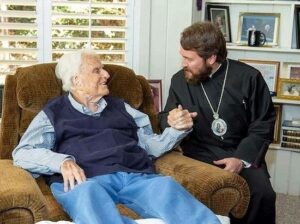

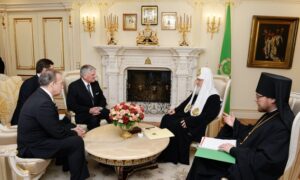
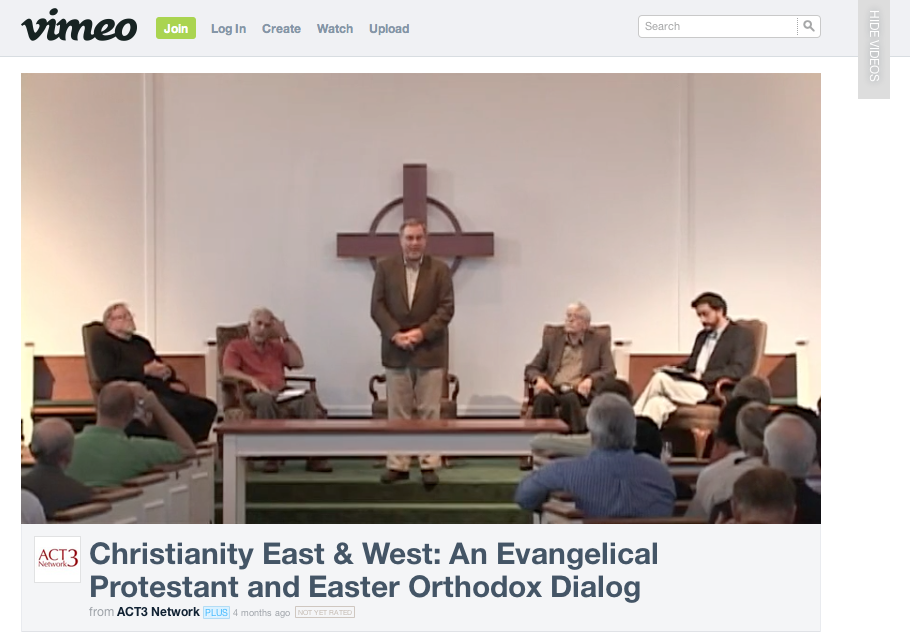
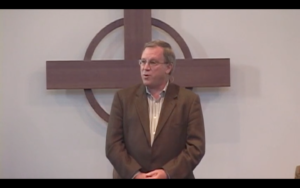
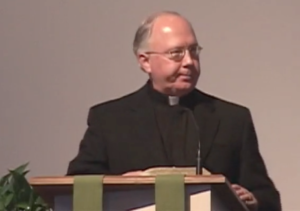
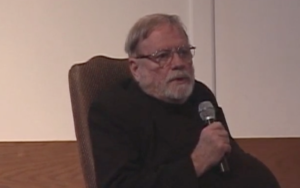
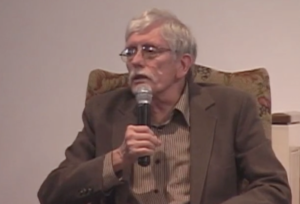
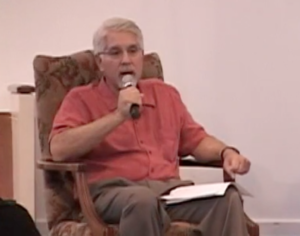
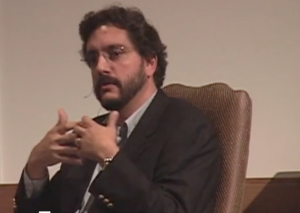
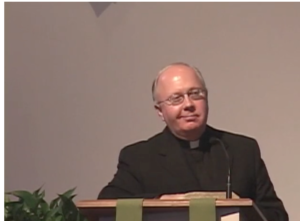
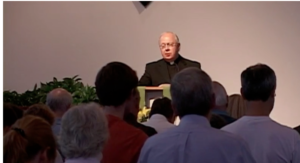




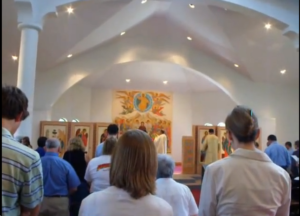
Recent Comments